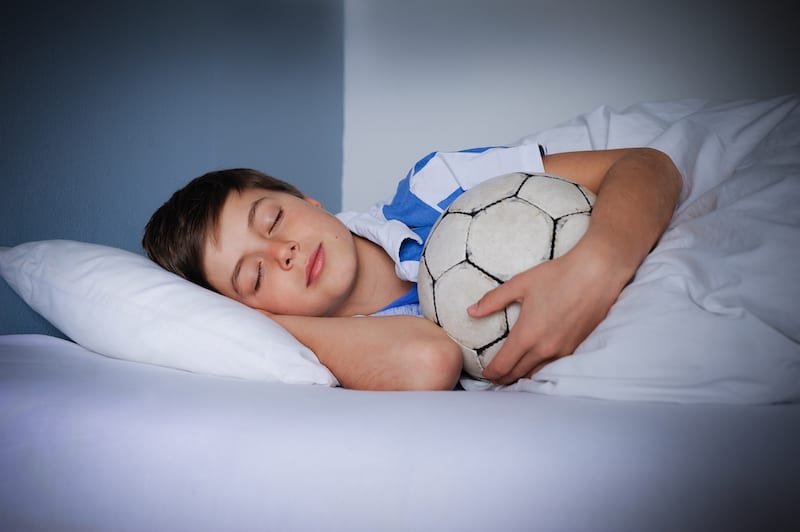Updated June 24, 2021
Written by Alexa Fry | Medically Reviewed by Dr. Anis Rehman
Athletes know that physical activity is an important component of a healthy lifestyle. Regular exercise increases longevity1 and reduces the risks of cardiovascular disease, diabetes, and some cancers. Exercise can also reduce the risk for anxiety and depression, and it can help you sleep better.
In order to perform their best, athletes must prepare in every aspect of their lives. They train regularly, eat healthy meals and snacks, and make time for rest, recovery, and sleep. When one area is lacking, overall performance can suffer. Sleep is certainly no exception!
Why Is Sleep Important For Athletes?
For both athletes and non-athletes, sleep is essential for overall health and wellbeing. Everyone needs sleep in order to feel restored and function their best2 the next day. Other physical benefits include:
- Allowing your heart to rest3 and cells and tissue to repair. This can help your body recover after physical exertion. Also, as you progress through the stages of sleep, the changes in your heart rate and breathing throughout the night promote cardiovascular health4.
- Preventing illness or helping you recover from illness. During sleep, your body produces cytokines, which are hormones that help the immune system fight off infections.
- All of these restorative effects are important for athletes’ recovery and performance.
How Sleep Helps an Athlete’s Mental State
Sleep helps everyone to retain and consolidate memories. When athletes practice or learn new skills, sleep helps form memories, and contributes to improved performance in the future. Without sleep, the pathways in the brain that allow you to learn and make memories can’t be formed or maintained5.
Sleep is also essential for cognitive processing. Loss of sleep is associated with a decline in cognitive function6. This can have adverse effects on athletes whose sports require a high level of cognitive function, such as decision making and adapting to new situations.
Also, just as exercise can help improve or maintain mental health, sleep is important for maintaining athlete’s mental health. Quality sleep is associated with improving overall mood. Healthy sleep prevents irritability and decreases the risk of developments such as depression.











